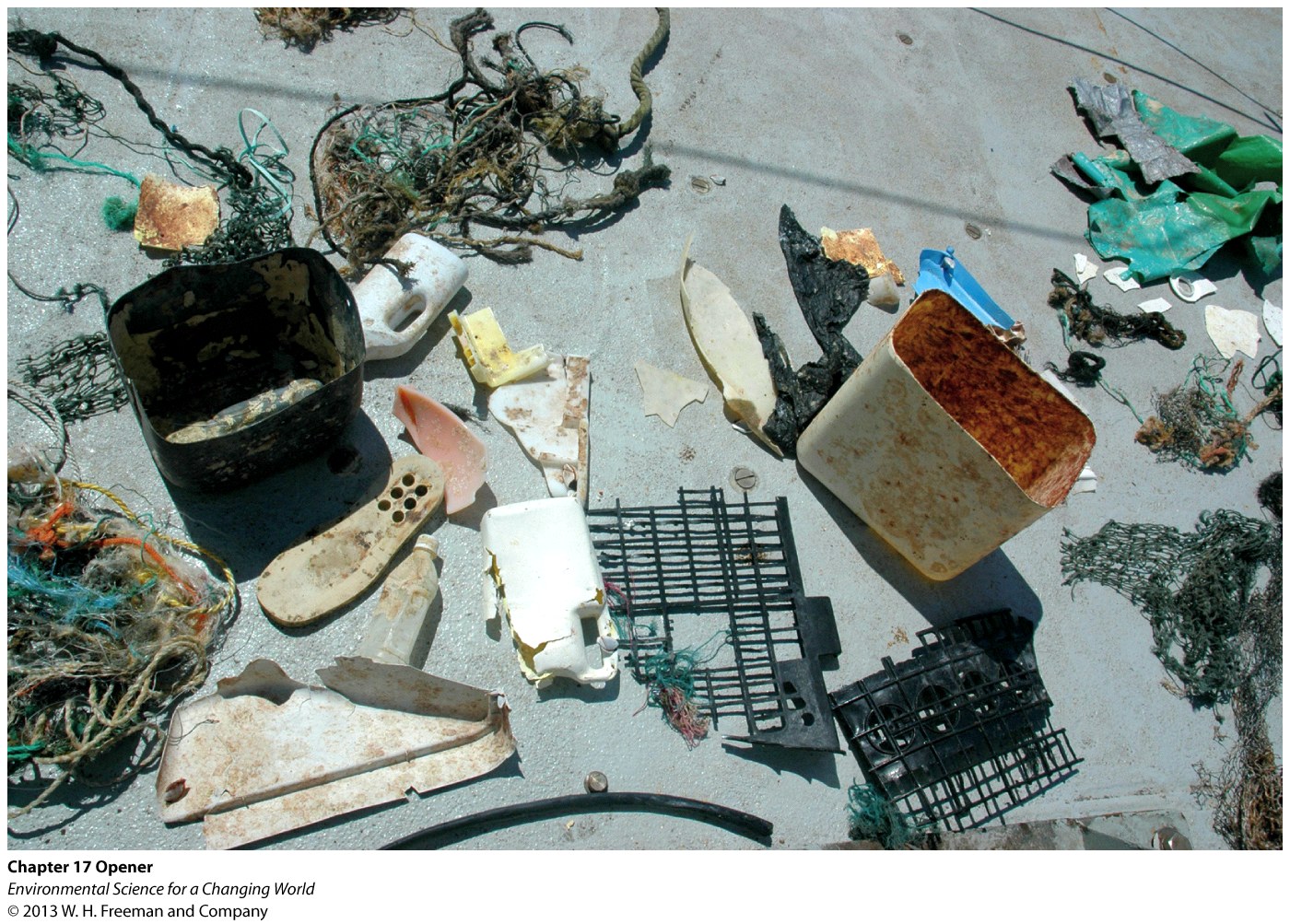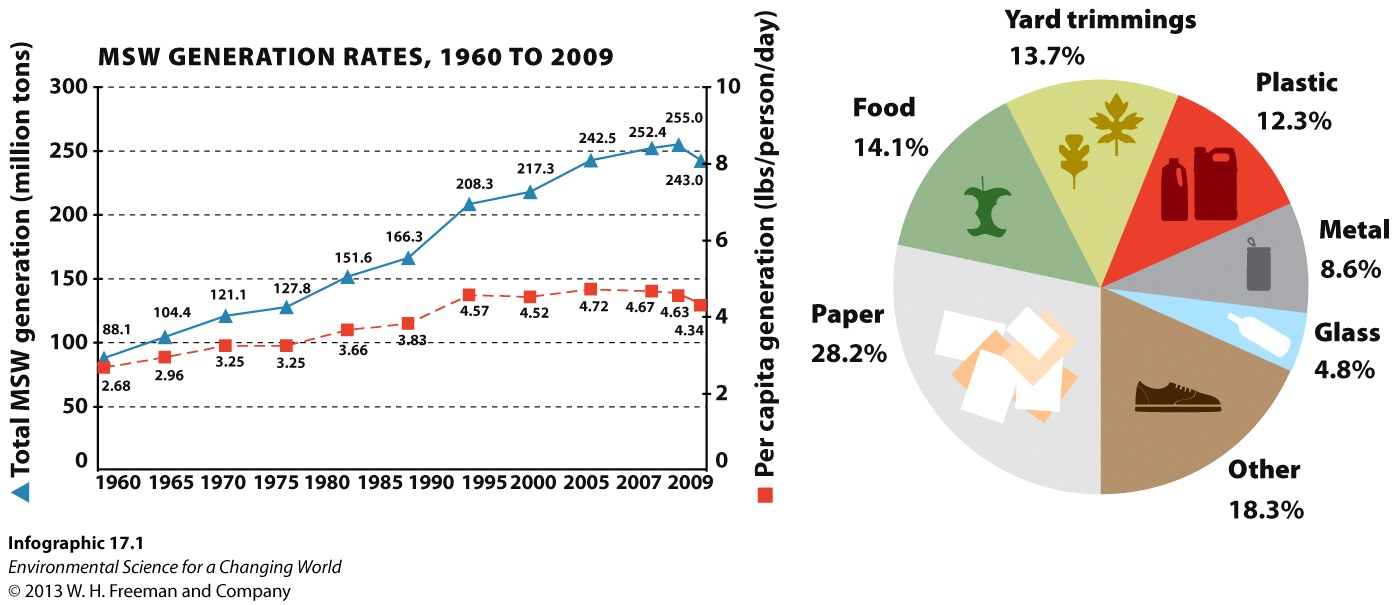Chapter 17. Chapter 17: Solid Waste
What kinds of trash do humans generate...?

Guiding Question 17.1
What kinds of trash do humans generate, particularly in developed nations like the United States?
Why You Should Care
In nature, “what goes in, must come out” is the rule of thumb for decomposition. This works for nature because everything produced or used by animals and plants can be broken down. Human technology changes that, as we produce synthetic chemicals that cannot be broken down by decomposers—this is the origin of trash. Trash is human-generated waste that is not broken down, either because it cannot be broken down or because we have buried it in an oxygen-deprived landfill, so it never gets the chance.
Everything we consume creates some waste. Developed countries produce a unique blend of wastes, some synthetic and some organic (which can be broken down). The goods we use always come with wrappers or containers, or they produce by-products as a result of the manufacturing process. As our ecological footprint has grown, so has our waste production. In just the past 50 years, the per capita waste production has almost doubled in the United States.
Question Test Your Vocabulary
Choose the correct term for each of the following definitions:
| Term | Definition |
|---|---|
| pjAPWTl7uNPGYM+3/r3CvfIv00rdIBPATxTIK3FeJsuXOfHhwZ1WBmKT0Y3SE47RmuJdjwfjBvZ75SO3H52JpEpnsYYnJN3CciBYZiwAzR0= | Matter can neither be created nor destroyed; it only changes form. |
| 1vuG0EJ0tedbHvwQrh+JnoiS6QkU97OVAwqtKH2SrRoZW9jfIrqttlWRN991bdUFMrCJHafWPJ9YLgP+zElZNixdZnScrIzF74wQLxYK0V0= | Any material that humans deem to be unwanted. |
| jnrNHJBpiNI37IvMjKE1ERYzx6V0uuze/L2Z/q+TWUyonZSH2itUXtxgmgzBEfvP+ZmNV5Bc+Fs1DRT5klN8hQlSwhBqxgjJeRIpgp7196c= | Capable of being broken down by living organisms. |
| 4klcx2ijXMpyGzWaKSv8zNQ7r3SSdHYuF56bwMRkPYtNzrleAWQWpDgzYFLZ8VRnpYgRHEQ0Nsjpisg04Q+UKsQ0AjiWKRl9tnBkCt9Jf5M= | Everyday garbage or trash (solid waste) produced by individuals or small businesses. |
| gy/CA4VauBgHNEw5yNjjIUzU9iFEgxWKGeH0GP/rRib9HFrMPRtZNWFq8I1MVQtnQct8dDKEphylQW1qWl3XeUcGkz9sPisg7cXozi9PSNg= | Incapable of being broken down under normal conditions. |
